Using A Ketogenic Diet For Hypothyroid
People everywhere are using a ketogenic diet to massively boost their body’s ability to function and heal. Given that the ketogenic diet has been shown to help alleviate a number of conditions, I have people constantly asking me if a ketogenic diet is right for them. One that I get a lot is people with hypothyroidism. While opinion varies in the field, I think a ketogenic diet for hypothyroid conditions can be super beneficial if you do it right.
Of course, with anything pertaining to a health condition, you have to take into account unique factors per individual and per condition when designing a health plan. The following is the ketogenic plan I would recommend for someone dealing with hypothyroidism and factors you should consider when following one.
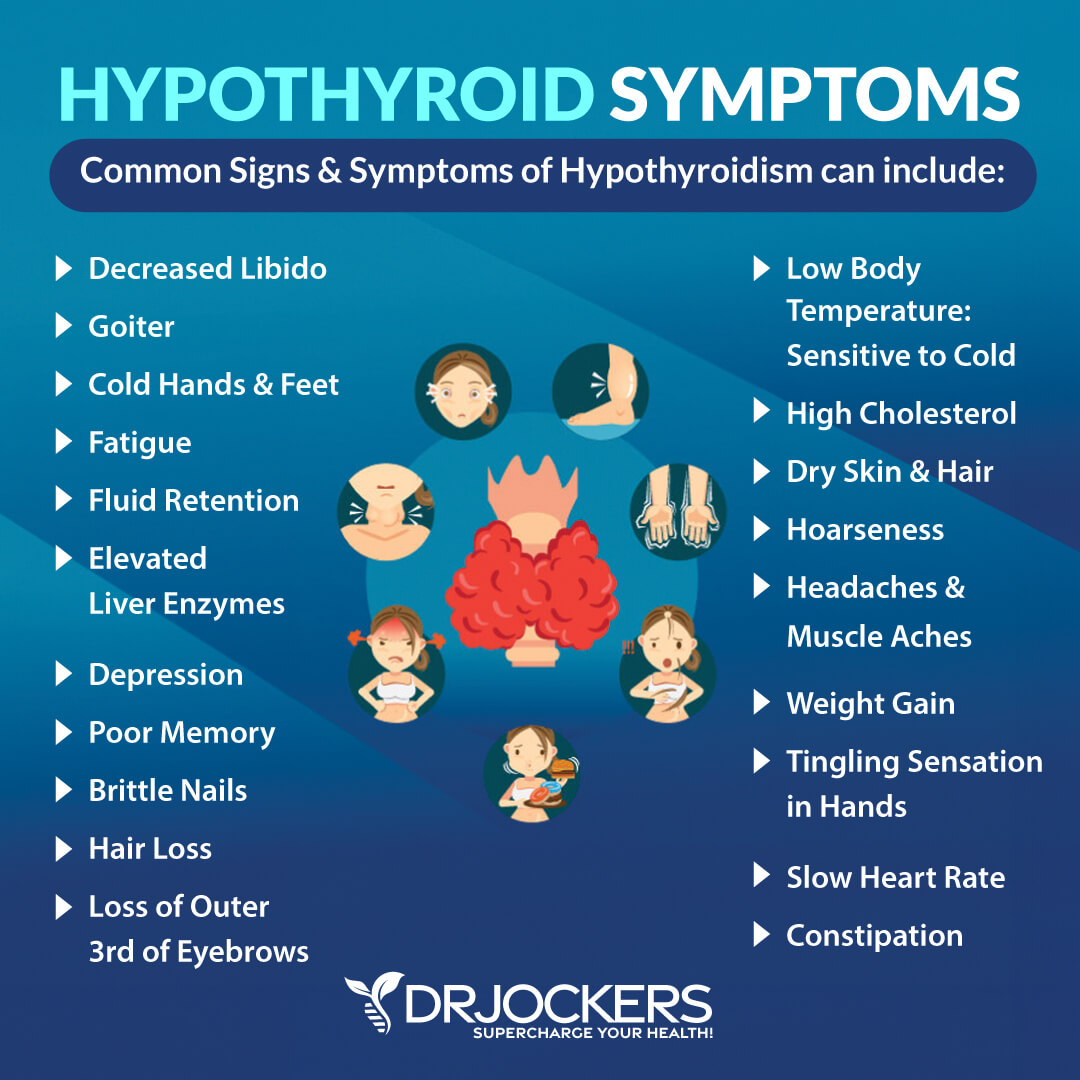
Hypothyroidism
Hypothyroidism is generally characterized by inadequate thyroid activity in the body. From a traditional medical standpoint, it is often referred to as the thyroid not producing enough hormones. This is a limited view however as thyroid hormones can be imbalanced due to a number of reasons that have little to do with the thyroid gland itself.
People who are struggling with a hypothyroid typically experience low energy, weight gain, mood imbalances, foggy thinking, and overall lowered vitality. Those that have been diagnosed with hypothyroidism will usually be put on thyroid hormone replacement without addressing any root cause.
HPT Axis
The whole thyroid hormone regulation process is actually a delicate dance between the brain (hypothalamus and pituitary), thyroid, liver, and even the gut in some ways. Together, there are a number of signaling and conversion processes that take place. These can be thrown off in a number of different ways that have almost nothing to do with the actual thyroid gland.
The hypothalamus and pituitary in the brain constantly monitor the body and regulate what signals get sent to the thyroid. Various factors can influence this process as we will discuss later in this article.
When you are looking to design a healthy lifestyle for someone who has been diagnosed with hypothyroidism, the entire process of thyroid hormone production needs to be considered, not just the gland itself.
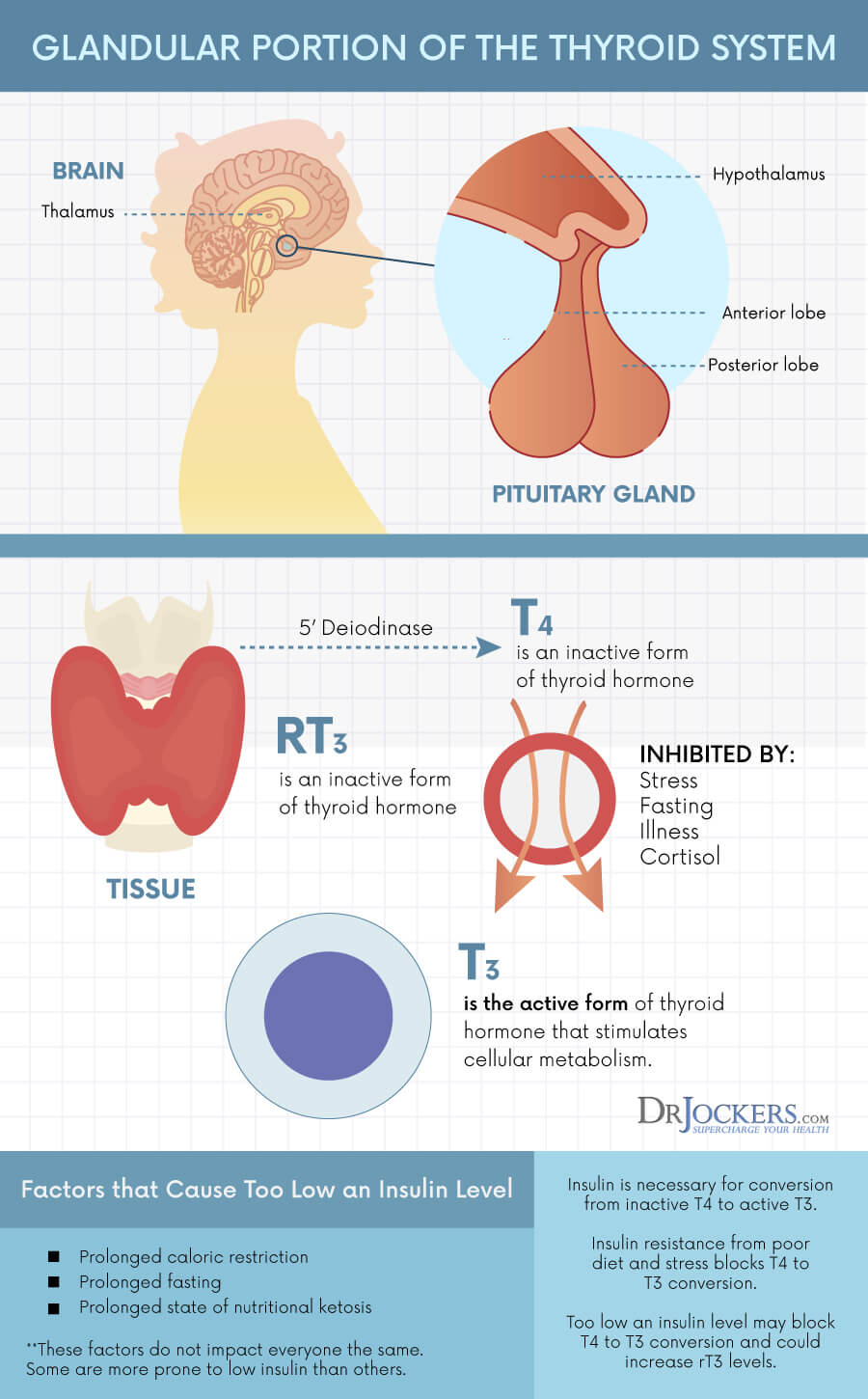
Ketogenic Diet
A ketogenic diet is a high-fat, low-carb diet designed to influence the metabolism in a way that promotes fat burning over sugar. Burning fat for energy is more efficient and produces less inflammation than burning sugar. That being said, there are a number of benefits attributed to a ketogenic diet.
For one, reducing inflammation boosts just about every process in the body. Chronic inflammation is damaging to the cells and especially to the mitochondria. Mitochondria produce all of the energy for the body and dictate how well your body is able to function.
Chronic inflammation also distracts the immune system which can contribute to autoimmunity, a common cause of hypothyroid (1).
Additionally, this style of eating encourages a healthy metabolism by burning off excess fat and stabilizing blood sugar levels. Without going into too much detail, a ketogenic diet simply enables the body to function at a much more efficient level and this may allow for a more balance production of thyroid hormones.
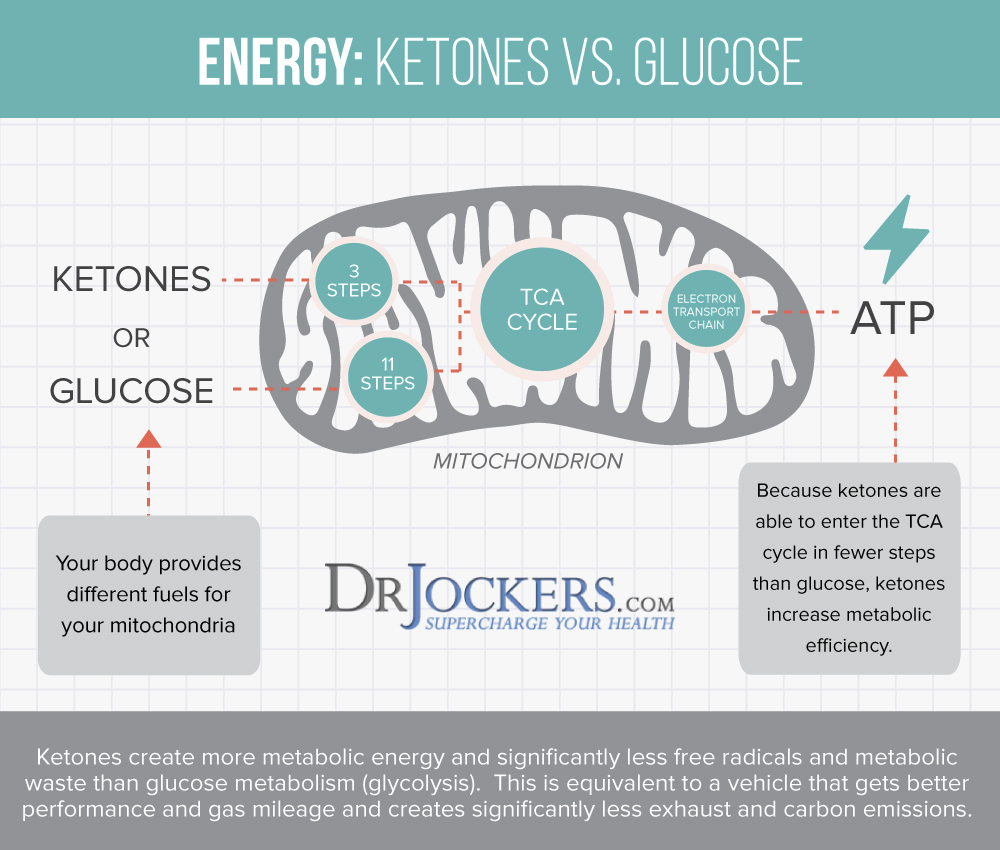
Ketogenic Diet and Thyroid
There is an idea in the functional medicine community that following a ketogenic diet is bad for thyroid health. This idea is not supported by research. There is some evidence that following a ketogenic diet may lower T3 levels however. This does not necessarily qualify as hypothyroid and may actually be beneficial.
In fact, this lowered T3 is seen with calorie restriction and protein restriction as well (2). Evidence seems to point to lowered T3 as a physiological adaptation in the body that allows for a deeper state of ketosis and preserved muscle mass (this is a good thing) (3, 4). This is given that TSH and T4 levels remain normal.
This is where it is really important to monitor how you are feeling on a day-to-day basis and determine how you are responding to a ketogenic diet. T3 levels may be slightly depressed, however if you are feeling very good then it is not really a concern.
Like I said this drop in T3 allows for deeper ketosis and preserved muscle mass. Additionally, and interestingly enough, low T3 levels are actually associated with a longer lifespan in research (5).
Lowered Inflammation
One of the huge benefits for hypothyroidism with a ketogenic diet is lowered inflammation. Lowering inflammation can assist with hypothyroid by improving T4-T3 conversion and reducing autoimmune activity. Especially in cases of autoimmune thyroiditis, such as Hashimoto’s, this effect can be extremely beneficial.
Many people with hypothyroidism have found that they feel great on a ketogenic diet. There are some considerations I would suggest reviewing before starting one yourself. They mostly have to do with supporting healthy thyroid hormone conversion.
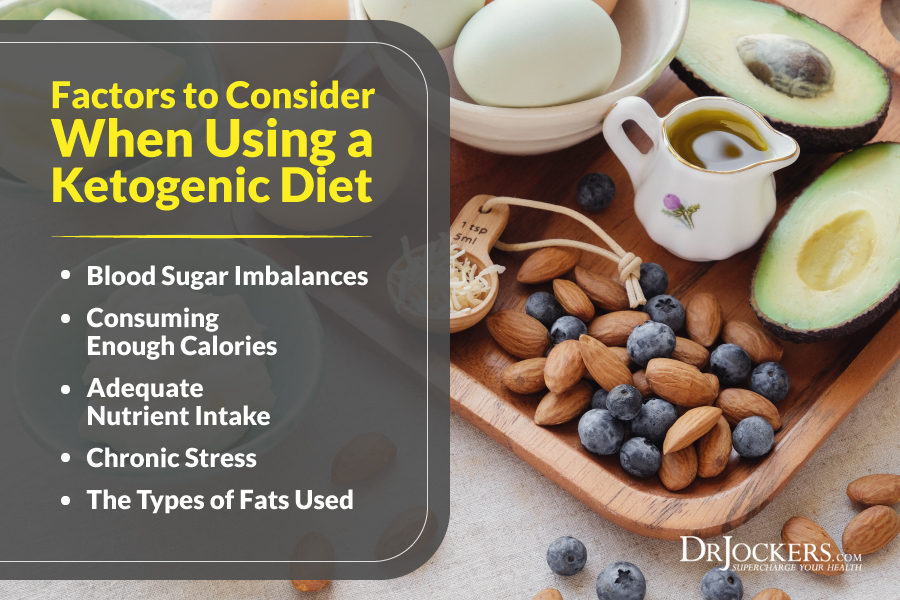
Blood Sugar Imbalance
Rapidly fluctuating blood sugar contributes to the formation of inflammatory proteins called advanced glycolytic enzymes (AGEs). These AGEs have a high affinity for thyroid tissues and may inhibit thyroid hormone production (6).
Luckily, following a ketogenic diet will automatically drop and stabilize insulin and blood sugar. That is as long as you control stress levels and avoid common food sensitivities.
Stress and reactive foods can cause cortisol responses that stimulate the release of glucose, causing blood sugar spikes even when not consuming a lot of sugars. Controlling these factors will drastically improve your chances of success.
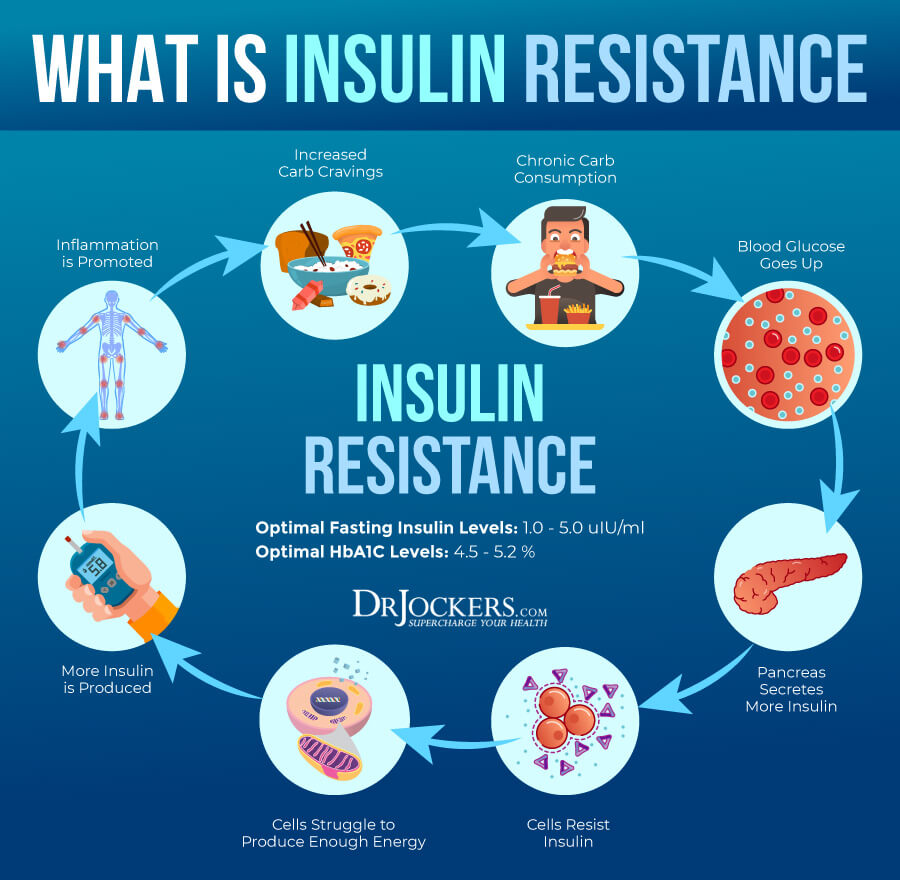
Low Calories
Not consuming enough calories for a prolonged period of time can result in the body shifting to a state of conservation. It has been shown that calorie restriction is often associated with lower T3 levels (7). As I mentioned earlier, this is most likely a conservatory mechanism of the body for times of scarcity. This can also lead to many hypothyroid symptoms that are mistakingly attributed to a ketogenic diet.
Ensuring you are consuming enough calories is another factor to consider when designing your ketogenic diet plan.
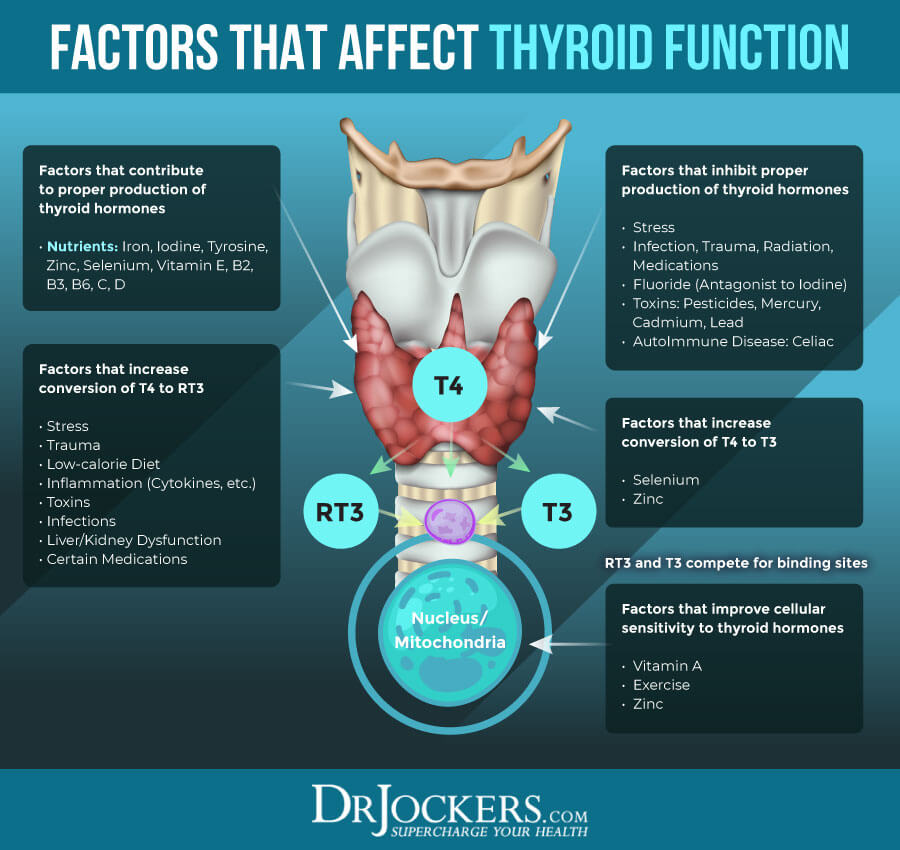
Nutrients
Many people who convert to a ketogenic diet have drastically changed the types of foods they eat in a short amount of time. It is important to ensure you are still receiving all necessary conversion factors in your diet for healthy thyroid hormone levels.
Iodine, tyrosine, Vitamin A, Selenium, Zinc, B Vitamins, Vitamin C, and Vitamin E are all important for the production of thyroid hormones.
Consuming the kinds of foods outlined in a healing diet will ensure a diverse array of nutrients. This includes wild-caught fish, pasture-raised meats and dairy, and plenty of nutrient-dense vegetables. Strategic supplementation can also be extremely helpful as it is a much more reliable way to reach therapeutic dosing of these nutrients.
Chronic Stress
Chronic stress cranks up the production of something called rT3, or reverse T3. What rT3 does is essentially blocks T3 from exerting its effects in the body. While by traditional standards this would not be considered pathological hypothyroidism, the symptoms would be very similar.
The release of cortisol due to chronic stress also directly inhibits the enzyme (5’-deiodinase) which converts inactive T4 into active T3. This can lead to low T3 levels (8).
Making sure that you are taking steps to control your stress during this time is critical for maximizing therapeutic benefits.
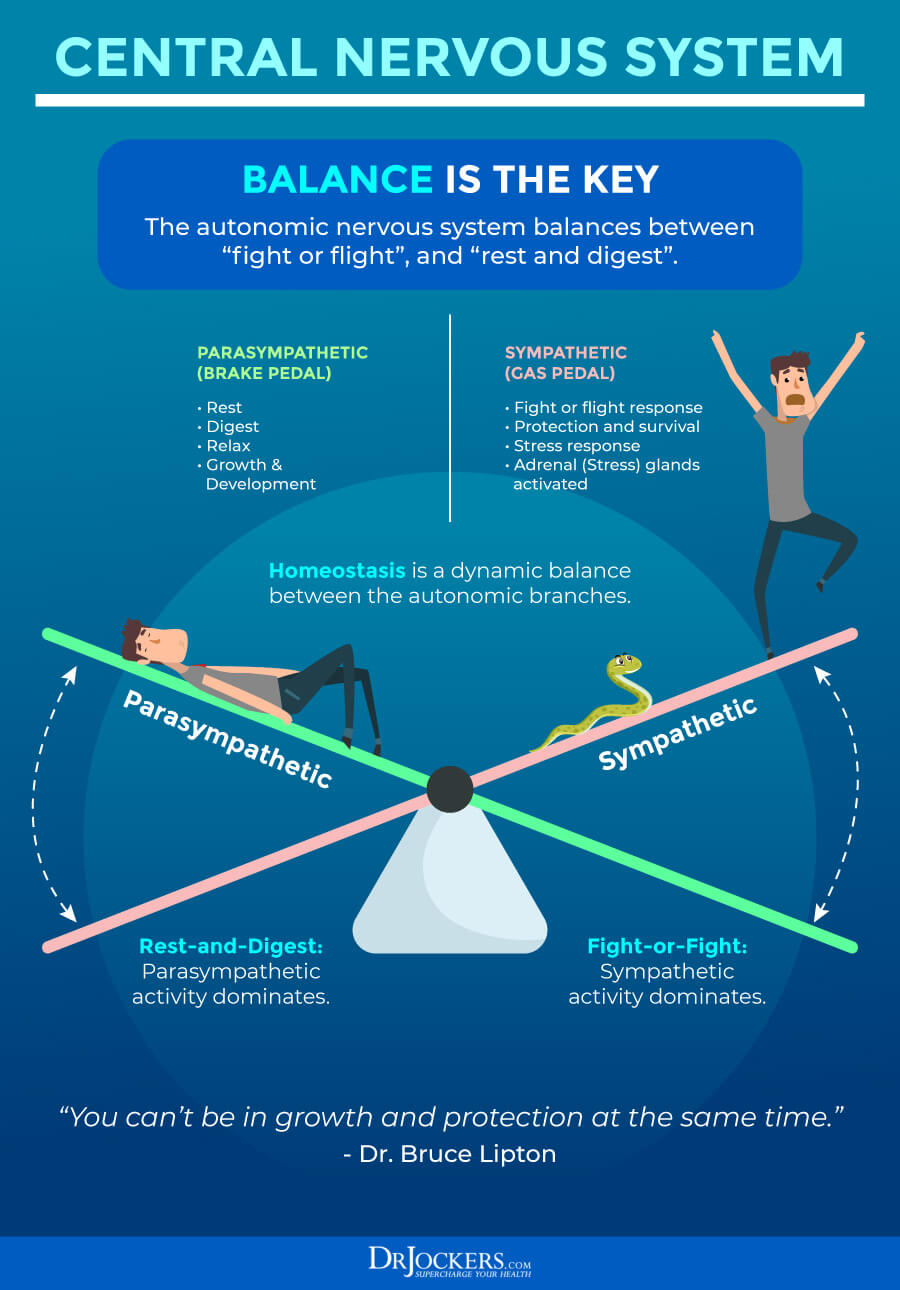
Types of Fats
While it is pretty common knowledge at this point that vegetable oils should be avoided at all costs, I figured it should still be mentioned here. Processed vegetable oils that are high in polyunsaturated fatty acids may have a negative impact on thyroid hormone signaling (9).
Conversely, healthy fats like those found in olive oil and wild caught fish may actually improve thyroid hormone signaling (10).
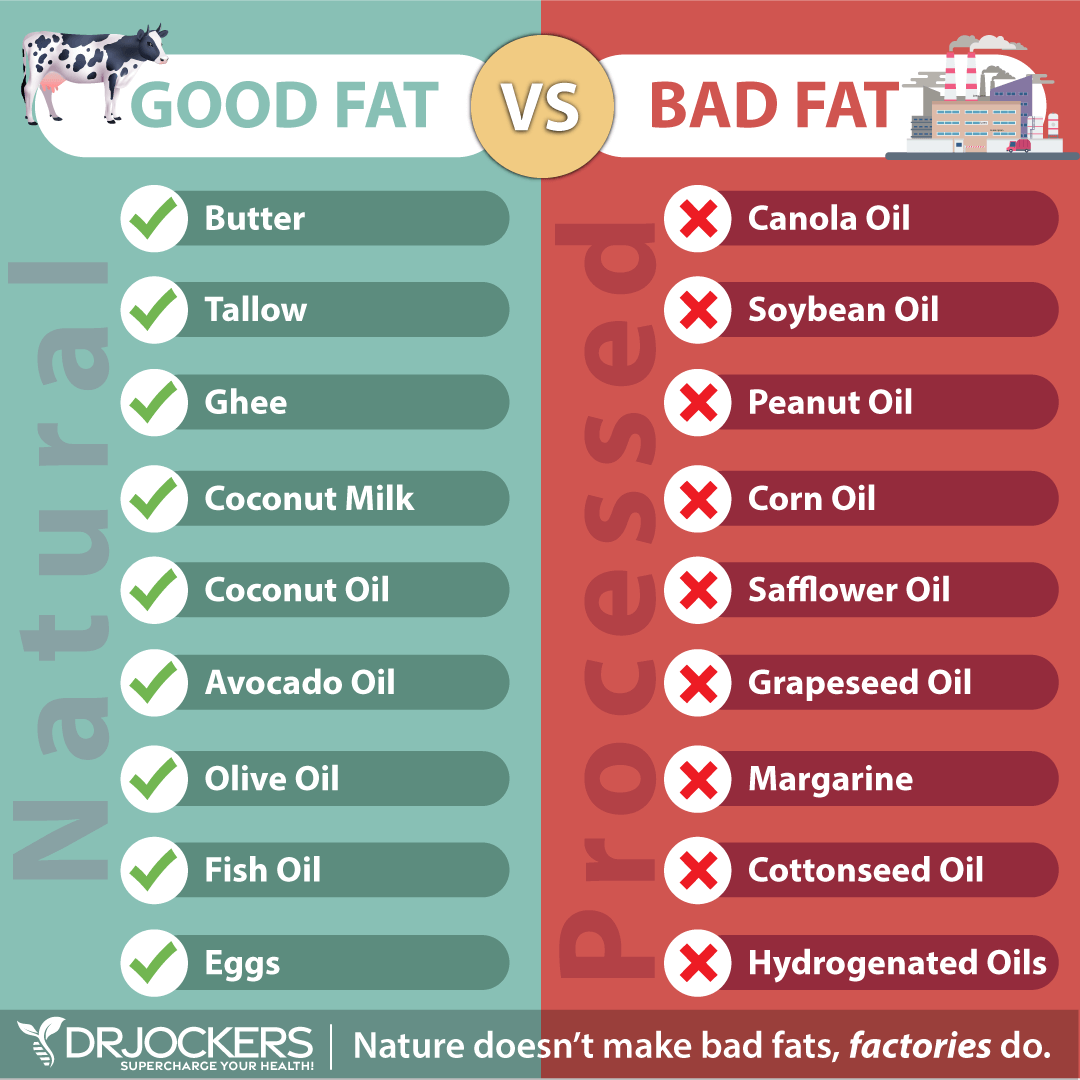
Best Ketogenic Strategies
If you are going to implement a ketogenic diet to assist in healing hypothyroid issues, there are a number of things you should take into account before starting. I have found that a cyclic ketogenic diet works best for individuals who are susceptible to hypothyroidism.
With these individuals, my health coaches and I try to find the best periods to cycle in healthier carbs to keep the thyroid stoked while getting the anti-inflammatory benefits of keto. I will typically use a carb backloading strategy that I discuss in this article and customize it to what the individual feels best with.
In addition, people with hypothyroidism will have trouble producing enough stomach acid, bile and pancreatic enzymes for proper digestion. We support them with Betaine HCL, ox bile and digestive enzymes. We also try to focus on small and medium chain fats and get them doing things like MCT oil, which doesn’t depend upon bile for digestion and turns into ketones quickly in the body.
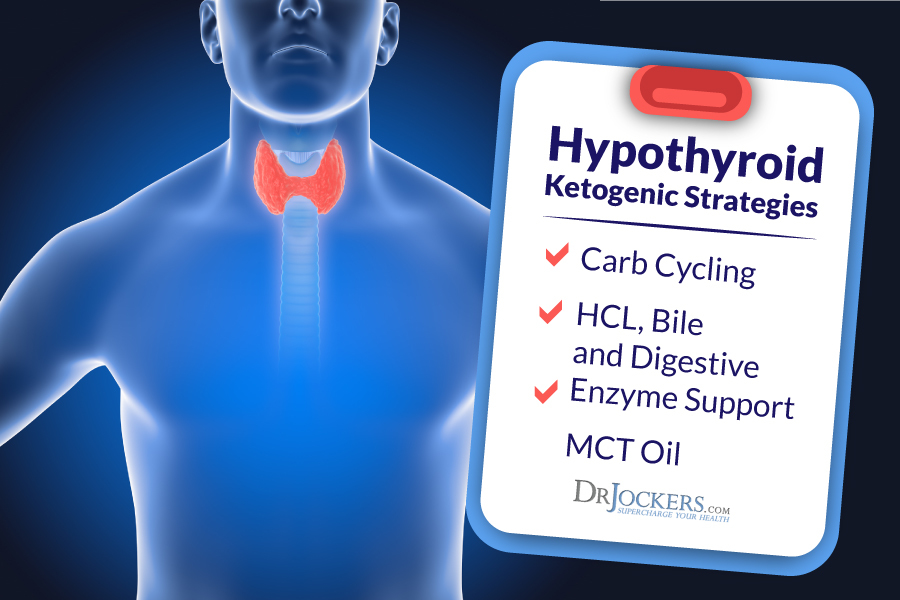
Carb Cycling
I have found that most people do best when following a cyclic style of ketogenic diet and especially if they are hypothyroid. This means that while most of the time they will be following a very low-carb meal plan, there are periodic times where carb intake is increased to restore and replenish glycogen within the body.
You can do this in several variations, however I usually recommend going 6 days in ketosis with 1 day every week that is higher in carbs. On these days, you can utilize slow-digesting carb sources like sweet potatoes to temporarily cycle out of ketosis.
HCl & Gallbladder
Something that I have noticed is that hypothyroid individuals often have very poor digestion. This can manifest in two ways; low stomach acid and poor gallbladder function. Both of these processes should be supported in order to optimize therapeutic benefits.
For strategies on how to support optimal stomach acid production, read this article here. For ways to improve gallbladder function, read this article here.
Supplementing with a comprehensive digestive aid like Super Digest HCL can be super helpful for assisting the digestion of proteins and fats to relieve stress on the digestive tract.
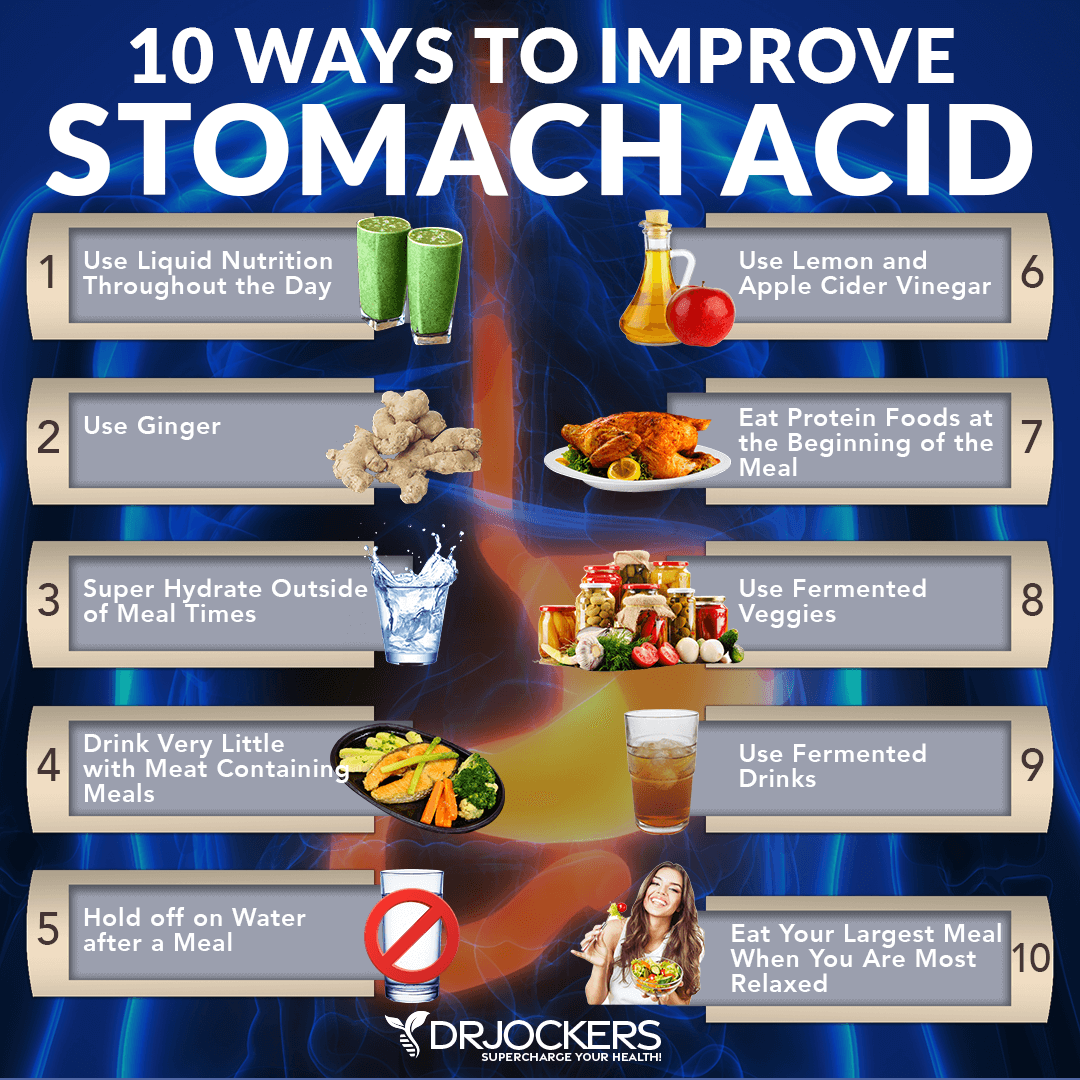
MCT Oil
Another great way to support ketosis and relieve stress on the gallbladder is to supplement with MCT oil. This is essentially oil that is refined from coconut oil that provides a very readily absorbed source of ketones so your digestive tract and liver do not have to do as much work to convert them.
This will be especially important in cases of poor gallbladder function and near critical if the gallbladder has been previously removed. As mentioned previously, hypothyroid individuals typically do have issues with gallbladder function.
Keto Brain is a pure 8 carbon chain caprylic acid. It is free of lauric acid and capric acid. This formulation turns very quickly into ketones in the body. This means that it is instant fuel for the brain. It helps to keep ketones up and allows the body to easily switch over from burning sugar to ketones as its primary fuel source.
Keto Brain works directly in cells to give you an extra boost to maximize your performance. Tired of constantly craving sugar or caffeine? Want a thermogenic immune boost with your energy? Try Keto Brain and I am sure you will see a significant improvement!
Summary
Although a bit controversial for a while, using a ketogenic diet for hypothyroid conditions can actually be very beneficial. Follow the strategies outlined above to ensure you maximize your therapeutic effects.
Following these powerful strategies and using the supportive supplements I recommend can help you improve thyroid health and set you up for success while on a keto diet. For more advanced nutrition strategies including carb backloading and optimizing digestion, check out my advanced nutrition and recipe book the Keto Metabolic Breakthrough.
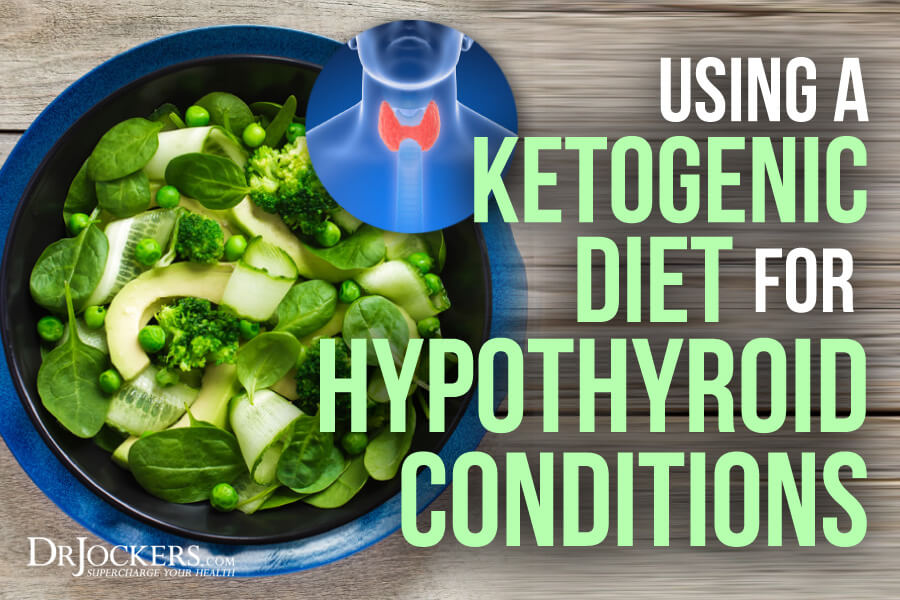
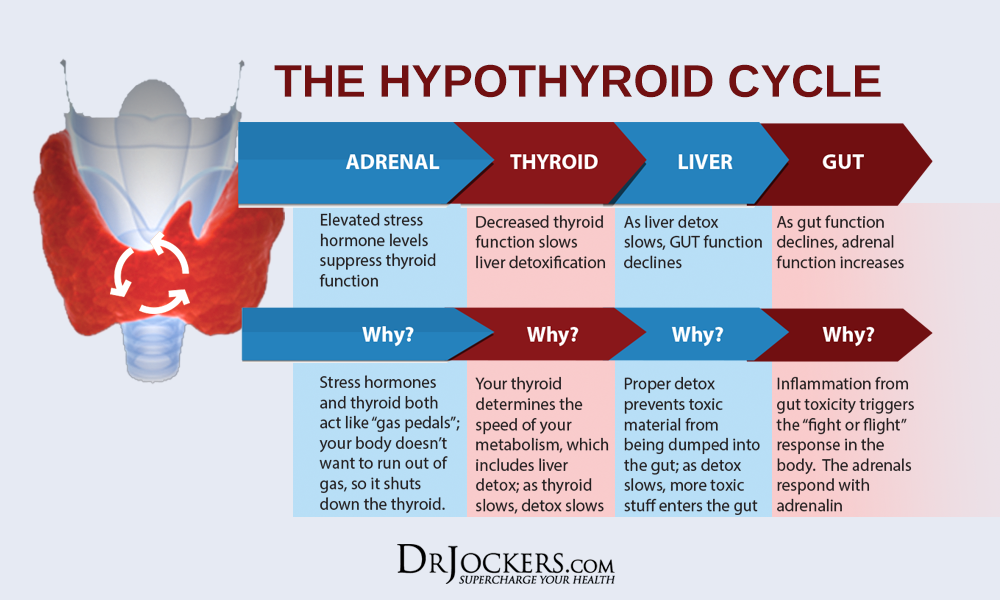
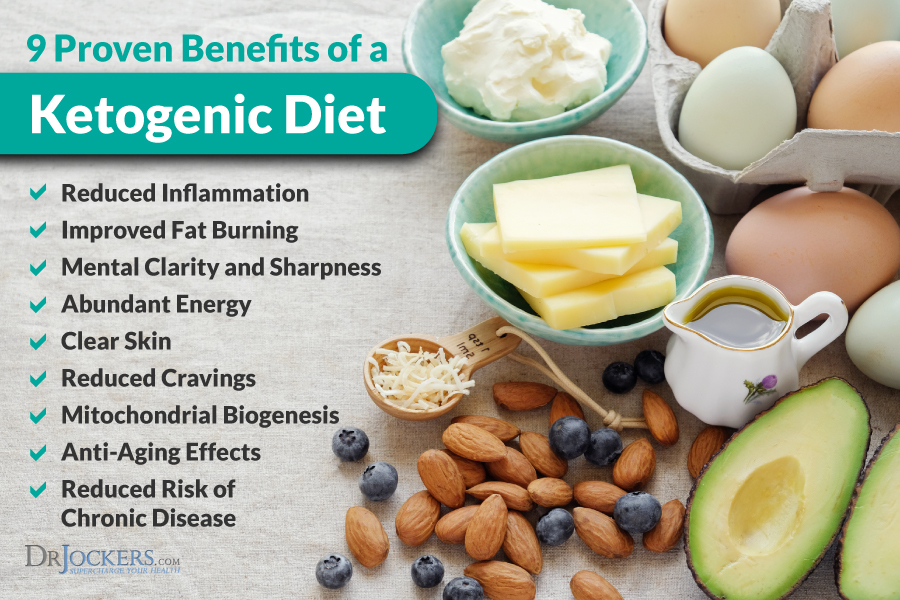
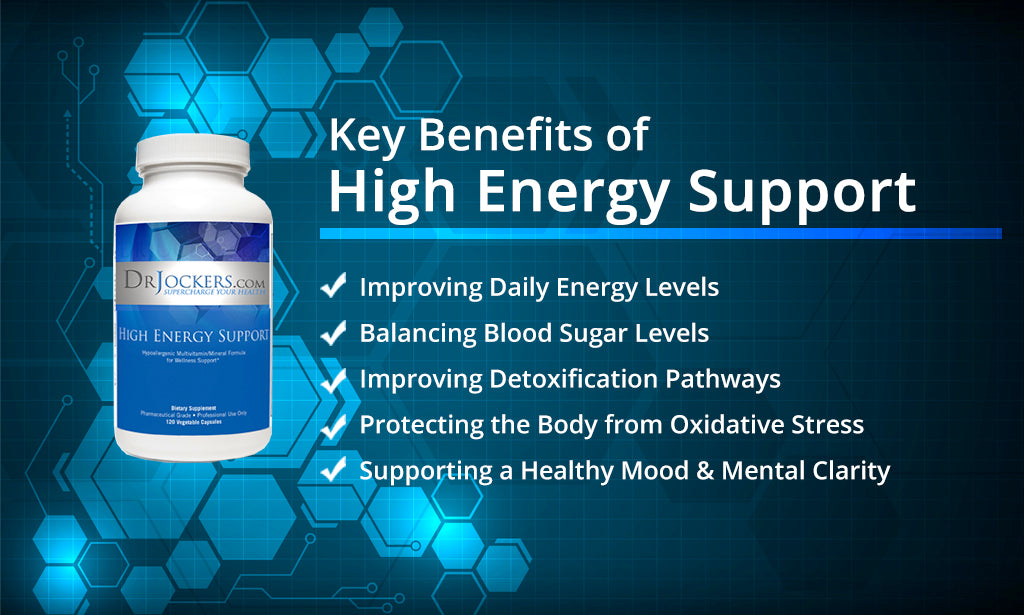
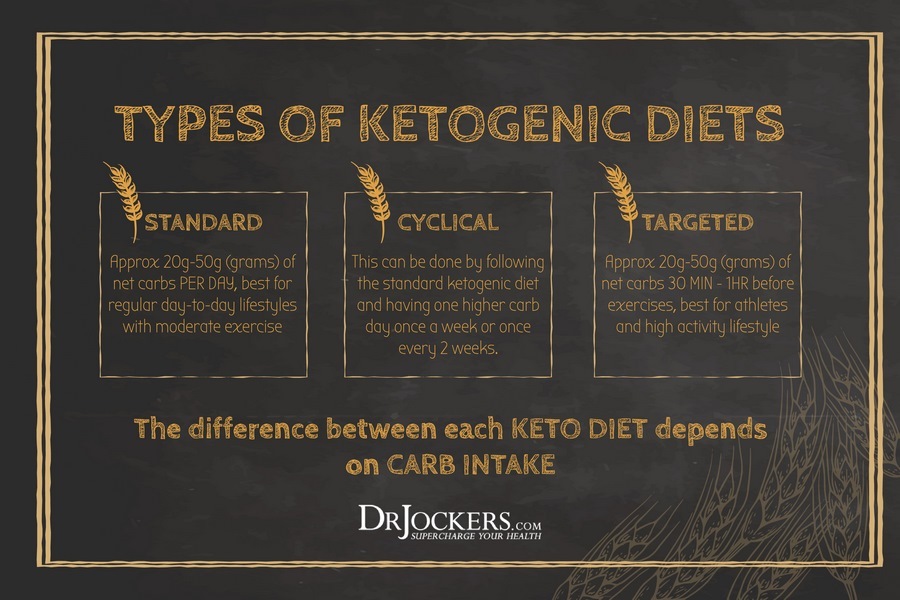

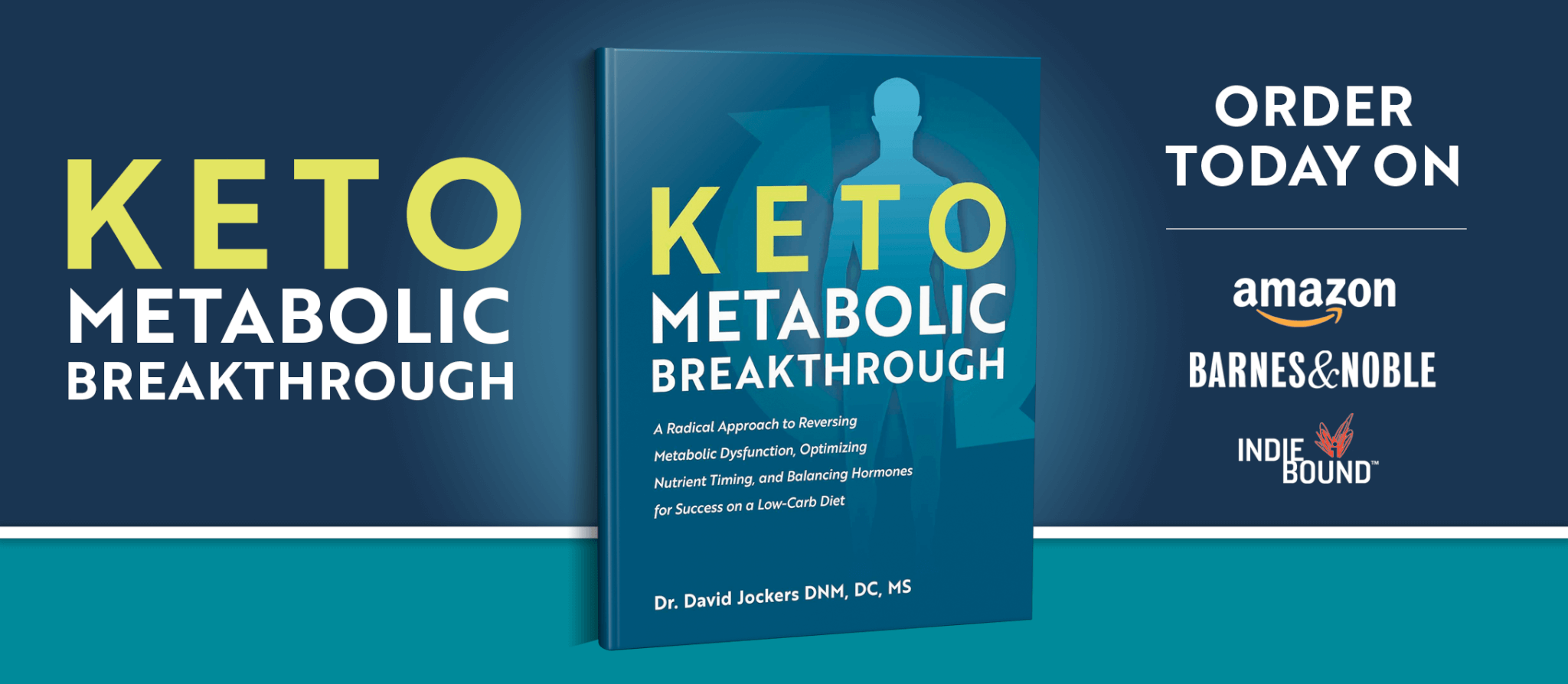



Do you know much about Keto and Ovulation. My low thyroid is affecting ovulation – it takes about 100 days to see the results because of how long it takes for the egg to reach maturity but I wanted more info and you seem to know quite a bit.
It would probably best serve you to either do a cyclic ketogenic diet or daily carb cycling where you consume low glycemic carbs at dinner time!
I have Hashimoto’s and have been eating low carb for several years. I started the Keto diet in the Fall of 2017. I developed unbearable hives that would not go away for more than a day or two at a time. I saw a dermatologist, my primary care physician and an allergist. None of them attributed my chronic hives and angioedema to my low carb diet. After two rounds of Prednisone and 5 daily doses of Cetirizine didn’t get rid of the hives, I decided to try adding healthy carbs back into my diet. Within 2 days the hives were completely gone, without taking any medications. I have been hive-free for 4 days, without taking any medications. Can anyone tell me if they have heard of this? What caused this reaction to the Keto diet?
Hey Jeannie, that sounds like keto rash which is uncommon but when it happens it is typically due to a die-off reaction in your gut microbiome. You see carbs feed certain microbes and when we take those carbs away, the microbial balance begins to shift and this releases certain microbial debris. If someone has an immune reactivity to this microbial debris than they can end up with the keto rash. I will typically have people do activated charcoal and probiotics to help reduce this.
I, too, got the keto rash after a couple of weeks on the diet. I searched for info and found a blog from a few years back that mentioned Black Cumin. I tried it and it seems to work and I am continuing that use. I’m showing signs of hypothyroidism and my gallbladder has been removed. Do you have a specific diet to follow that I can print out? Also, the caloric/macros info, do you provide this in your diets? Thanks!
This info might be helpful for you Karen! https://drjockers.com/ketogenic-diet-hypothyroid/
Hi, I have Hashimotos and have been feeling much better on keto, I’ve even lost about 15 lbs in about 4 months, when nothing else worked before. I had my first blood work taken since being keto and my tsh has almost doubled. Free t4 is about the same and unfortunately they did not test my t3. My goiter is gone though. Any reason why tsh would double, but I feel better, am losing weight, and my goiter went away??? Thank you!
I started the keto diet a couple of weeks ago and I dropped a pound or 2 right away but plateaued. I was so encouraged but now getting discouraged. I use test with strips daily to make sure I am in Ketosis and I have been. What am I not losing weight. I am putting a couple of table spoons of coconut oil in my decaf green tea and drinking a pea protein smoothy with 1/2 cup of blueberries. for lunch a low carb salad with some protein or a burger patty with guacamole and a little goat cheese and mayo. For dinner a chicken salad or fish with a vege and a salad. I will take a Tbl spoon of almond or peanut butter for a snack if I am feeling hungry. I am walking but not going to the gym. I have approx 26% body fat and I am 56 years old. I want to lose 10 to 12 lbs. I feel and look best about 127Lbs. I do have mild hypothyroidism and I take 30 mgs of NP thyroid. What gives? Why am I not losing ? I expected the weight to start coming off but nothing more than the initial 2 lbs. I would be so grateful for your input. Thank you
Hey Teri! These two articles have a lot of good information that may help you figure out what the problem is:
https://drjockers.com/10-biggest-ketogenic-diet-mistakes/
https://drjockers.com/weight-loss-hacks/
If I am on sythroid (75mg) with and have been on the same dose for 10 years, will KETO affect my levels?
It may Hannah but not a whole lot. You can monitor periodically to be safe!
I have Hashimoto’s and every time I try a high-fat low-carb diet I get severe anxiety and depression. What can I do?
Hey Gina, you may need to support bile flow: https://drjockers.com/bile-liver-gallbladder/
This article may be helpful as well: https://drjockers.com/trouble-digesting-fats-hacks/
Hi, I have hyopthyrodism since 10 years and I take 75mg of thyroxine midicine, my weight is 90 kg and my tall is 165 cm. My question is the keto diet is good for me or not, because a lot of research said not and just you said yes !! , and if its ok for me can you tell how I can start and what the calories is good for me
Thank you
Sorry to hear this! I would recommend getting a functional health coach to support and customize a plan for you. Here is a helpful article on how to find one: https://drjockers.com/functional-nutrition-tips-to-find-a-great-health-coach/
Hi, doctor you said that ketogenic diet is good for hypothyrodism but in the same time the ketogenic cycling is not good for them , can you explain that please
Yes keto and carb cycling are very helpful!
If I have hypothyrodism , when I can start carb cycling. I mean after 30 days of ketogenic cycling or after 5 days from beginner??
It depends. I typically recommend the 30 day keto cycle and then start carb cycling after that.
I had hives around the third week of keto and then they went away. I did not take any meds. I think I illuminated all carbs other than some raw veggies and this may have shocjed my body. An anti histamine effect?? It has never returned in since then in my past year on keto ( I have hypothyroid).
Hi Deb, Here are two additional articles that might help you identify what caused the hives: https://drjockers.com/keto-rash/ & https://drjockers.com/bile-liver-gallbladder/
Sorry, I need to vent…this strict dieting and watching everything you eat is sheer hell. Before I got sick, I ate whatever I felt like..now, this pleasure is forever gone. I don’t have a clue how people handle preoccupation with food around the clock…esp. working ppl…extremely stressful, which is bad for health:-(( and frankly, it’s a low quality life.
Thanks for excellent article about keto and hypothyroidism. One detail was a little confusing- you say “I will typically use a carb backloading strategy that I discuss in this article and customize it to what the individual feels best with.” Then you say “I have found that most people do best when following a cyclic style of ketogenic diet”. Do you mean that you encourage one day a week eating carbs (cyclic keto) but only at dinnertime (backloading)? Thanks for clarification
Yes, you can do either strategy – a higher amount of carbs (let’s say 40-60 grams in the evening) for carb backloading each evening or just go low carb all week and have one day a week where you do 100-200 grams of carbs.
OK many thanks